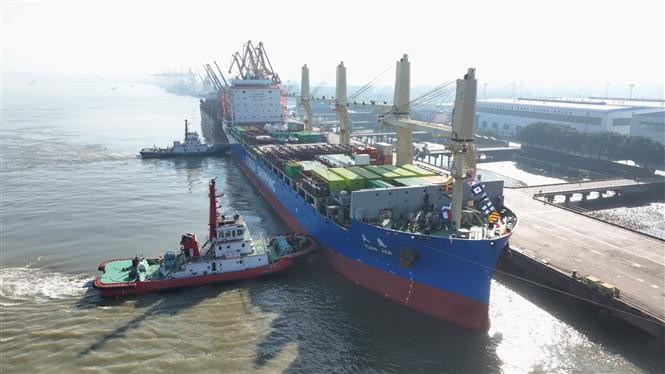China is seeking to shift the balance of influence in Antarctica in its favor.

The recent opening of China’s Qinling surveillance base, its third in Antarctica, has alarmed some Australian and American observers, according to Benjamin J. Sacks, a policy researcher at the RAND Corporation and professor of geopolitics at the Pardee RAND Graduate School, and Peter Dortmans, a senior fellow at the RAND Corporation Australia. Their concerns suggest that it may be time for Australia to assess China’s Antarctic ambitions more clearly and respond better.
Qinling is China’s first base located on the Ross Sea, south of Australia and New Zealand, near the US McMurdo base. This Chinese satellite surveillance facility has raised concerns in the West. Qinling could become another node in the Chinese military’s BeiDou navigation network and be used to monitor Australian and New Zealand communications.
Some of Beijing's own statements have reinforced these concerns, with the Chinese National Defense Academy's Science of Military Strategy paper stating that “the northern and southern extremes have become an important direction for China's interests to expand overseas and to distant frontiers, and have also posed new problems and tasks in the use of China's military power.”
A 2023 RAND Corporation study acknowledged the potential military risks posed by China’s Antarctic activities, although it noted that Chinese officials have affirmed their respect for the 1959 Antarctic Treaty and its related protocols, collectively known as the Antarctic Treaty System. The Madrid Protocol, for example, bans mining in Antarctica, and China is a signatory.
So what are China’s long-term ambitions in Antarctica? Buchanan argues that Beijing is seeking “a say” in Antarctic affairs, and that this may be part of China’s efforts to shift the balance of influence in Antarctica in its favor in any future renegotiations of Antarctic territory.
These efforts appear to be driven largely by economics, particularly in relation to krill fishing and harvesting. Along with Russia, China’s fishing fleet – the world’s largest – is rapidly expanding its krill fishing capacity, deploying vessels under the guise of scientific research (in krill research zones) that will eventually harvest more krill than is permitted in Antarctica.
Meanwhile, China has repeatedly rejected new marine protected areas and is likely to continue developing its lucrative fishing industry. So far, China has resisted efforts by other signatories to curb its fishing ambitions.
Given that any signatory could call for a renegotiation of the Antarctic Treaty, it seems that Beijing is biding its time while diversifying its presence in Antarctica. In this light, China’s recent actions, including the opening of the Qinling station, are intended to put itself in the strongest possible position against any changes to the treaty.
Given the uncertainties surrounding Antarctica’s geopolitical future, as evidenced by growing concerns about China’s activities and ambitions in the region, it may be time for the Australian Department of Foreign Affairs and Trade to establish its own Antarctic Affairs Office, Sacks and Dortmans conclude. Such an office could be responsible for formulating Australia’s future strategy and contingencies, advising the Australian Government on its official position, and negotiating and building international consensus with allies and partners.